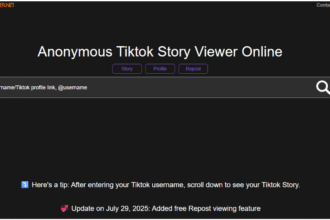In today’s interconnected world, international trade is no longer just for multinational corporations. Small businesses, e-commerce ventures, and even individuals are increasingly engaging in cross-border transactions. However, navigating the intricate web of customs regulations, tariffs, and documentation can be a daunting task. This is where an online customs broker becomes an important partner.
- 1. Certifications and Licensing: The Foundation of Trust
- 2. Industry and Region Expertise: Specialization Matters
- 3. Digital Tools and Technology: Efficiency at Your Fingertips
- 4. Global Network and Local Presence: Reach and Reliability
- 5. Proactive Guidance and Communication: Beyond Just Processing
- Conclusion: Your Strategic Partner for Global Growth
But with a growing number of digital platforms offering customs brokerage services, how do you choose the right one? It’s not just about finding the cheapest option; it’s about securing a reliable, efficient, and compliant partner. This article will delve into the critical factors you need to consider when selecting a licensed online customs broker, ensuring your goods move seamlessly across borders.
1. Certifications and Licensing: The Foundation of Trust
Just as you wouldn’t trust an unlicensed doctor, you shouldn’t entrust your valuable shipments to an uncertified customs broker. Certifications and licenses are paramount, indicating that the broker meets stringent industry standards and is authorized to operate.
- Official Licenses: Ensure the online customs broker holds the necessary licenses from the relevant government bodies in the countries they operate. In the U.S., for instance, this would be a license from U.S. Customs and Border Protection (CBP).
- Industry Certifications: Look for certifications from recognized industry associations, such as the National Customs Brokers & Forwarders Association of America (NCBFAA) or similar bodies in your region. Programs like the Certified Customs Specialist (CCS) demonstrate a high level of expertise and ongoing professional development.
- Compliance Programs: Participation in programs like C-TPAT (Customs-Trade Partnership Against Terrorism) or AEO (Authorized Economic Operator) indicates a commitment to robust security practices and a strong relationship with customs authorities, often leading to faster clearance times.
These credentials signify a broker’s commitment to compliance, ethical practices, and deep knowledge of customs laws.
2. Industry and Region Expertise: Specialization Matters
While general customs knowledge is important, specialized expertise can be a game-changer. Different goods and regions come with their unique regulatory landscapes.
- Product-Specific Knowledge: If you’re importing or exporting specialized goods (e.g., pharmaceuticals, electronics, food products, hazardous materials), ensure the broker has a proven track record in handling those specific commodities. Misclassification of goods can lead to significant delays, fines, and even seizure.
- Regional Acumen: Customs regulations vary drastically from country to country, and even within regions. A broker with in-depth knowledge of the specific rules, cultural nuances, and common challenges of your target markets can prevent costly errors and expedite clearance. Their connections with local customs authorities can also be invaluable.
- Staying Updated: The world of international trade is constantly evolving with new agreements and policy changes. A good online broker will demonstrate a commitment to continuous learning and proactively inform clients about relevant updates.
Choosing a broker with relevant expertise can mean the difference between a smooth operation and a compliance nightmare.
3. Digital Tools and Technology: Efficiency at Your Fingertips
The “online” in “online customs broker” is crucial. Leverage the power of technology to streamline your customs processes.
- User-Friendly Platforms: A modern online customs broker should offer an intuitive and accessible digital platform. This includes features for easy document upload, real-time shipment tracking, and transparent duty/tax calculations.
- Automation and AI: Look for brokers leveraging artificial intelligence (AI) and machine learning (ML) for tasks like automated tariff classification, predictive analytics for potential issues, and intelligent document verification. This reduces human error and speeds up processing.
- Data Visibility and Reporting: The platform should provide comprehensive data visibility, allowing you to track the status of your shipments, access historical data, and generate reports for auditing and strategic planning.
- Integration Capabilities: Can their system integrate with your existing ERP or e-commerce platforms? Seamless integration can significantly reduce manual data entry and improve efficiency across your supply chain.
- Cybersecurity: Given the sensitive nature of trade data, inquire about their cybersecurity measures to protect your information from breaches.
Advanced digital tools are not just a convenience; they are essential for efficiency, accuracy, and risk mitigation in today’s fast-paced global trade environment.
4. Global Network and Local Presence: Reach and Reliability
For businesses engaged in multi-country trade, a broker with a strong global network offers unparalleled advantages.
- Extensive Reach: A broker with offices or trusted partners in various countries can provide consistent service standards and facilitate complex international shipments with greater ease. This minimizes the need to coordinate with multiple brokers in different regions.
- Local Support: While online platforms offer convenience, having access to local expertise and support in key markets can be invaluable, especially when dealing with unforeseen issues or specific customs requirements.
- Consolidated Services: A global network can often lead to more consolidated services, potentially reducing overall costs and simplifying communication by having a single point of contact for multiple destinations.
A robust global network signifies a broker’s capacity to handle diverse trade lanes and provide support wherever your business takes you.
5. Proactive Guidance and Communication: Beyond Just Processing
The best online customs brokers go beyond simply processing your declarations; they act as strategic partners.
- Consultative Approach: Look for a broker who offers proactive advice on trade agreements, duty optimization strategies, and compliance best practices. They should be able to identify potential pitfalls and suggest solutions before issues arise.
- Clear Communication: Effective and timely communication is vital. The broker should keep you informed at every stage of the customs clearance process, respond promptly to queries, and clearly explain any complexities or requirements.
- Problem-Solving Capabilities: Unforeseen challenges can arise in international trade. Assess the broker’s ability to swiftly and effectively resolve issues like customs holds, documentation discrepancies, or changes in regulations.
- Transparency in Pricing: A reputable broker will have clear and transparent pricing, outlining all fees and potential additional costs upfront. Avoid brokers with hidden charges.
A proactive and communicative customs broker is your advocate in the complex world of international trade, helping you navigate challenges and seize opportunities.
Conclusion: Your Strategic Partner for Global Growth
Choosing the right online customs broker is a strategic decision that can significantly impact your international trade success. By carefully evaluating factors such as certifications, specialized expertise, digital capabilities, global reach, and proactive guidance, you can select a partner who not only ensures compliant and efficient customs clearance but also contributes to your business’s overall growth and resilience in the global marketplace. Don’t just look for a service provider; seek a true collaborator who empowers your international ventures.

















